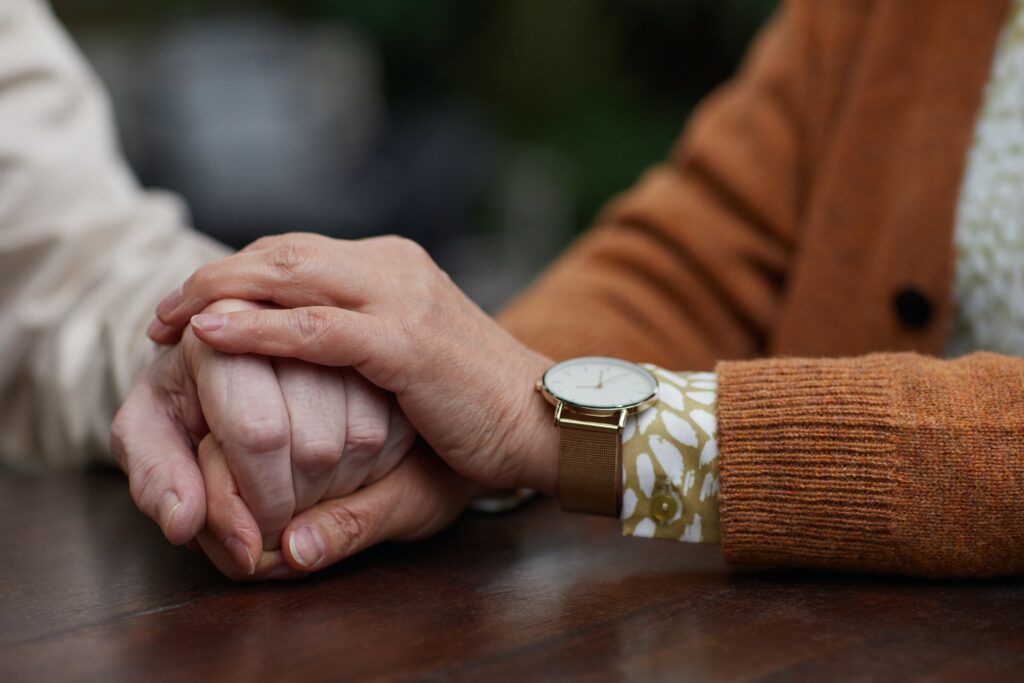How to support LGBTQ+ family members who test positive for HIV/AIDS
Kollyn Conrad, Founder & Executive Director of Publicly Private has some advice to help you and your loved one.
When we learn that one of our close friends or family members has tested positive for HIV/AIDS, it’s common to feel shocked, confused, and overwhelmed. While it’s perfectly natural to feel this way, there are many things you can do to help your friend or loved one as they begin their journey after diagnosis.
Find resources and reliable information about HIV/AIDS
To start, check out the CDC website. It provides helpful information about HIV/AIDS, as well as an online directory of local testing sites.
If your family member lives in the United States, he or she may be eligible for Medicaid or other health insurance coverage to help with medical care related to HIV and AIDS. Look into this option to see if it’s available in your state; doing so could help make treatment more affordable. Another option is to apply for Medicare Part B and ask that it cover all tests related to HIV/AIDS diagnosis and treatment.
Create a safe space for your family member to talk about their feelings
Next — as difficult as it may sound — it’s crucial that you remain patient and listen. Everyone reacts to the news differently, so it’s important that you allow your family member the space and time they need to process.
Your loved one is likely to have specific needs during this challenging time. Ask what they need and do whatever you can to support them. For example, if your family member wants someone with them during doctor appointments or treatments, then do what you can to make that happen.
The news of a positive test can be devastating for the person receiving it, but it’s important that you offer comfort rather than criticism or judgment. Let them know that you are there for them no matter what happens next.
Don’t judge or try to fix things — we can never truly know how someone will feel after being diagnosed as HIV-positive. Instead, let them tell you how they feel, and then support them however possible. If they choose not to share their thoughts with you, respect their decision and don’t take it personally. They might just need some time before opening up about these issues.
It’s also important to make sure you continue to communicate with your loved one. In addition to asking how they are feeling and what their needs are, ask them about their fears and concerns. Remember: HIV does not define who someone is, nor does it change who they are or how much you love them.
Help your loved one find medical care and support
Ensure that your loved one has a primary care doctor who can keep an eye on their health and that they’re taking care of themselves. They’ll likely be happy to have someone else helping with this part of the process, so don’t be afraid to ask. If they decline, however, then don’t argue with them.
Many doctors won’t see patients who have been diagnosed as positive, but there are other doctors who specialize in treating people living with HIV/AIDS. They may not be able to cure the disease, but they can provide medications that will help control its symptoms so that your loved one can lead a full life.
Once your loved one’s medical care is settled, you can focus on making sure he or she stays healthy. A lot of people with HIV/AIDS experience depression and anxiety. After all, they are dealing with a constant struggle against their own bodies, and it’s completely normal for them to feel this way. The best thing you can do is listen patiently when something goes wrong and offer unconditional support.
Educate yourself about HIV and AIDS, and be ready to share what you learned. This diagnosis can be overwhelming. In many cases, it’s helpful to offer emotional support along with practical advice about managing health care needs.
Finally, connect your friend or family member with support groups so they don’t feel alone in their battle with HIV. Many cities have established Pride Centers that offer a variety of services and you can even find a list of these centers at the National Coalition for LGBT Health. If there are no Pride Centers nearby, consider reaching out to local LGBTQ+ organizations like PFLAG (Parents and Friends of Lesbians and Gays) or GLAAD (Gay & Lesbian Alliance Against Defamation), which have chapters throughout the country.

You can help someone in your life who has tested positive for HIV or AIDS by connecting them with helpful information, finding them a safe space to talk about their feelings, and helping them find medical care. Remember to be patient and supportive. Your loved one is going through a lot after receiving their diagnosis and needs all the love and support you can offer. The best thing you can do is listen without judgment, provide resources when asked for them and offer your time if needed.
About the Author
Kollyn Conrad is the founder and Executive Director of Publicly Private, a nonprofit organization offering supplies, support and empowerment to the LGBTQIA+ community. Publicly Private was inspired from Conrad’s personal journey of growing up as a gay man in the south. He was always passionate about helping and befriending underserved individuals, so he combined his passion and his experience to create Publicly Private and aid LGBTQIA+ individuals in their lifelong journey.






